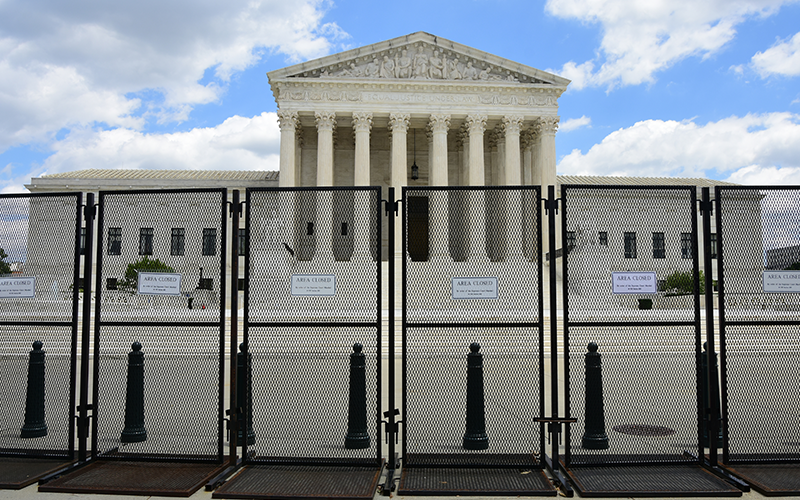It’s tempting to characterize the U.S. Supreme Court’s refusal during January to consider a pair of cases of critical importance to the Freedom Foundation and its thousands of supporters nationwide as a strikeout.
But in order to strike out, you at least have to come to the plate.
In both cases, the court — for reasons we can only speculate about — instead decided to pretend a game wasn’t even being played.
In the first case, the decision to deny cert in the Freedom Foundation’s challenge to Washington state’s new capital gains tax scheme clearly has implications beyond the Evergreen State, as its backers know perfectly well.
At the state level, the tax was little more than the latest clumsy attempt by the leftists who control Washington to lay the groundwork for an income tax. Under terms of the state constitution, however, Washington cannot impose an income or property tax unless it is applied uniformly to all who pay it.
The capital gains tax, which imposes a 7 percent tax only on income from capital gains above $250,000 a year, is obviously unconstitutional on that basis. But the authors of the measure sidestepped the constitution by calling it an excise tax on the sale of assets rather than an income or property tax on the revenue generated by it.
The Freedom Foundation immediately filed suit and a lower court judge took our side and invalidated the tax. But when the reliably liberal Washington State Supreme Court went along with the farce by reinstating the tax, the Freedom Foundation was forced to appeal to the U.S. Supreme Court on federal grounds.
A virtual Who’s Who of tax policy watchdog organizations signed amicus briefs echoing the Freedom Foundation’s concerns about a provision in the law that would allow Washington to impose a tax on the sale of capital assets by Washington residents or those who temporarily live in the state for the minimum number of days.
As written, Washington’s tax can now be imposed on the sale of capital assets that occur in other states. The sale could also be subject to taxes by the state in which the sale takes place, forcing the seller to pay twice for the same transaction.
Lawmakers in Washington, California and New York, whose high earners are increasingly relocating to less-punitive states like Florida and Texas, love the idea of taking one last bite of someone else’s apple on their way out of town, and the court would have been wise to nip this business in the bud rather than trying to put the toothpaste back in the tube once the gouging has begun in earnest.
It didn’t, and now the best hope for thwarting the tax is a statewide ballot initiative, I-2109, in November.
In the other case declined by the court, the justices scheduled, canceled and re-scheduled multiple conferences regarding an appeal from Alaska in which the state was attempting to impose a rule requiring public-sector unions to obtain informed consent from workers before deducting dues from their wages.
Ironically, the same requirement is clearly spelled out in the court’s 2018 ruling in Janus v. AFSCME, which effectively banned mandatory union membership and dues for government employees. But in the five years since the ruling was issued, unions have routinely pretended it never happened.
The Freedom Foundation has filed numerous appeals asking the justices to enforce the expressed will of the court in Janus but, to date, none have been accepted. Thus, states like Alaska, Florida, Arkansas, Kentucky and others have been forced — with the Freedom Foundation’s help — to enact statutes with the same intent.
It bears noting that the court offered no reasons for denying either case, and the reality that both were obviously the subject of thoughtful debate by the justices gives us reason to hope a similar Janus-related appeal will one day soon be accepted and the justices will finally stand up for their own handiwork.
One thing you can take to the bank is that the Freedom Foundation isn’t going away. Despite all the union-imposed obstacles, we continue to help public employees escape union tyranny in record numbers, and we always will.
We sincerely believe the majority that signed the Janus ruling said what they meant and meant what they said. Our adversaries know we do.










